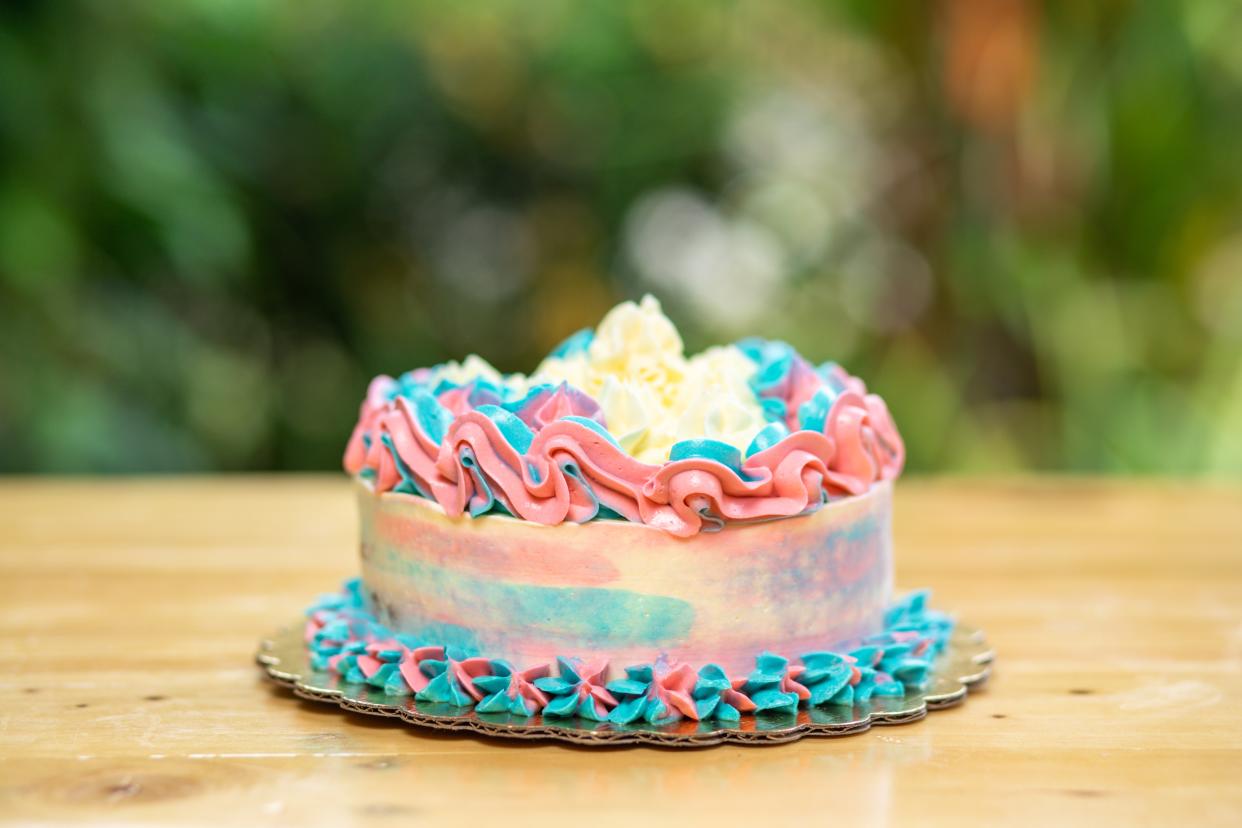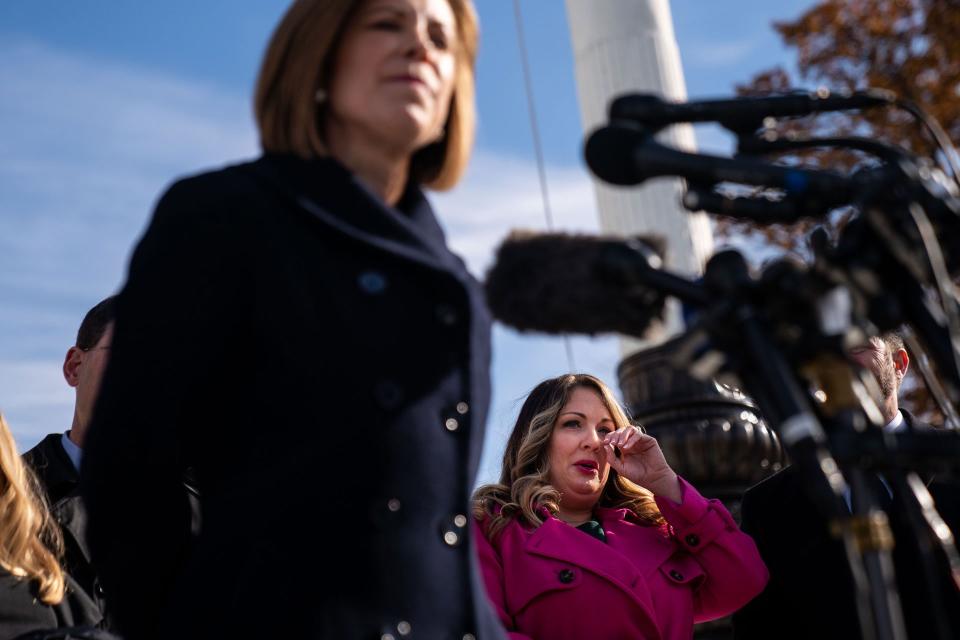The Christian Wedding Cake Baker Is Now Going After ... Trans Cake?

dionisio2002 / 500px
The Colorado Supreme Court heard oral arguments this week in another lawsuit to determine whether conservative-owned bakery Masterpiece Cakeshop violated discrimination law by refusing to sell a pink-and-blue cake to a transgender woman.
Masterpiece Cakeshop is most famous for a 2018 U.S. Supreme Court decision in owner Jack Phillips’ favor, which found that Phillips was justified in denying a wedding cake to a gay couple because of his “sincerely held religious beliefs.” While that case was still ongoing, trans lawyer Autumn Scardina attempted to order a birthday cake from Masterpiece Cakeshop in June 2017, requesting a cake with pink and blue frosting but no text. As Scardina told Them in 2021, Masterpiece accepted her order and would have fulfilled it if she hadn’t mentioned that the cake would also celebrate her gender transition. Instead, she said, a manager suddenly became “very hostile,” told her the cake would violate the store’s religious beliefs, and hung up.
Scardina won her lawsuit against Masterpiece and Phillips in 2021, as state district Judge A. Bruce Jones compared Masterpiece’s conduct to “a ‘Don’t Ask, Don’t Tell’ policy” and levied a $500 fine (the maximum possible fine under Colorado’s anti-discrimination statute). A state Court of Appeals affirmed that decision in 2023, which Phillips is now asking the state Supreme Court to overturn, again arguing that the laws violate his freedom of religious expression.
During oral arguments on Tuesday, justices reportedly asked lawyers for both sides how a bakery could refuse to make a cake with no writing while still complying with Colorado’s anti-discrimination law. Under that statute, no “place of public accommodation” may “refuse, withhold from, or deny [...] the full and equal enjoyment” of their goods and services. Masterpiece could not have known the significance of Scardina’s blank cake until she revealed it, the panel reportedly speculated, calling into question Phillips’ underlying motives.
“It’s only when [the cakes] get into the home of the consumer that they take on the message,” Justice Melissa Hart told Phillips’ lawyer Jake Warner, according to the Associated Press, discussing whether Masterpiece would have delivered an identical cake if it was intended to celebrate the birth of twins. “They are the same cake. It’s all a pink cake with blue icing.” Later, Justice Maria Berkenkotter reportedly asked Phillips directly if he would have denied an order for a white cake with white frosting if a customer said it also represented their transition; Phillips responded that Berkenkotter’s example was “lacking the symbolism” which was “not as clearly in the cake” as Scardina’s pink-and-blue request.
The Alliance Defending Freedom appears to have founded companies and staged fake weddings to claim their clients’ religious rights were being violated.
Colorado’s discrimination laws have been repeatedly tested in recent years, thanks largely to the Masterpiece lawsuits and the recent Supreme Court decision in 303 Creative v Elenis, in which the Court found that a web designer could refuse to create a wedding site for a gay couple on religious grounds. In her dissent, Justice Elena Kagan condemned the majority for offering public businesses “a constitutional right to refuse to serve members of a protected class.” Controversy has dogged that decision in the year since, as one of the men who allegedly ordered the site, himself a web designer, has since told reporters he is married to a woman and had never heard of 303 Creative. That revelation sparked speculation that the Alliance Defending Freedom (ADF), which represented 303 Creative and currently represents Masterpiece Cakeshop, had falsified information in that lawsuit and invented entirely new businesses to file other such suits. It is still unclear to what extent the 303 Creative decision will influence the Colorado Supreme Court’s ruling in this case.
“It's not about Masterpiece Cakeshop, Mr. Phillips, or his religious beliefs. As a Christian myself, I value him for his beliefs, and I pray for him,” Scardina told Them in 2021. “But I don’t think the law can accommodate individuals sidestepping secular law based on your own internal religious belief.”
Get the best of what’s queer. Sign up for Them’s weekly newsletter here.
Originally Appeared on them.
More LGBTQ+ news from Them
The Vast Majority of Mass Shooters Are Cis Men. Why Does the Right Keep Saying They're Trans?
Here’s How a Long Island Roller Derby Team Is Fighting a Trans Sports Ban in Their County
Here’s How a New Wave of Legislation Aims to “Legally Erase” Trans People
7 Trans Students on the Fear, Humiliation, and Loneliness of Life Under Bathroom Bans
Trans Adults Are the Next Target in the GOP’s War on Gender-Affirming Health Care


